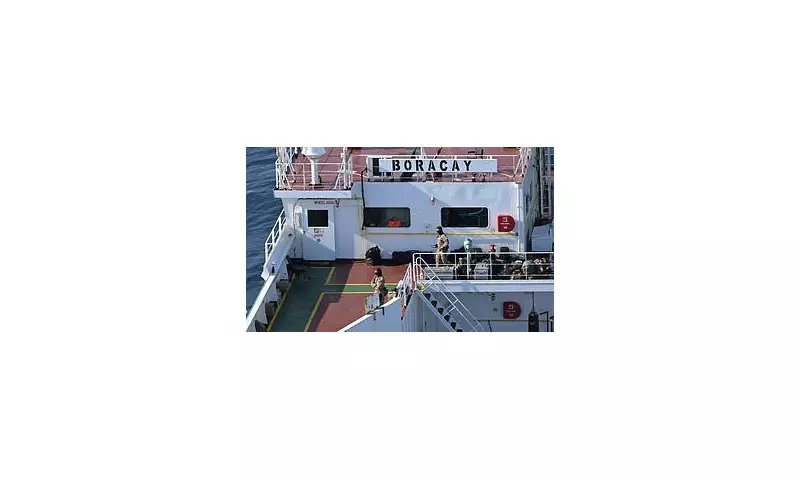
In a dramatic escalation of maritime security operations, French special forces have stormed and boarded a Russian-operated oil tanker sailing through the English Channel. The vessel, identified as part of Moscow's notorious 'shadow fleet', has been directly linked by European intelligence agencies to at least nine separate drone attacks on critical infrastructure targets across the continent.
The Channel Interception
French naval commandos executed a daring boarding operation approximately 20 miles off the coast of Le Havre, seizing control of the 173-meter tanker as it transited one of the world's busiest shipping lanes. Intelligence sources confirmed the ship had been under surveillance for weeks before the decisive intervention.
European security officials revealed the vessel had been systematically avoiding tracking systems while transporting sanctioned Russian oil through a complex network of shell companies and flag-of-convenience registrations.
Shadow Fleet's Dark Operations
The so-called 'shadow fleet' represents Moscow's clandestine answer to Western oil sanctions, comprising hundreds of ageing tankers operating outside international regulations and insurance requirements. What intelligence services have now uncovered, however, goes far beyond sanctions evasion.
"This isn't just about moving oil anymore," a senior European security official disclosed. "We've established clear connections between this vessel's movements and the timing of multiple drone strikes against energy infrastructure and port facilities in at least three European countries."
The Drone Connection
Intelligence analysis has revealed a disturbing pattern:
- The tanker's satellite communications systems showed unexplained transmissions preceding attacks
- Crew members have been identified with links to Russian special services
- Navigation data placed the vessel in proximity to coastal attack launch sites
- Electronic intelligence gathered during the boarding confirmed previous suspicious activity
European Security Implications
This operation marks a significant turning point in how Western nations are confronting Russia's hybrid warfare tactics. The boarding represents one of the most direct military responses to date against Moscow's shadow fleet operations.
Maritime security experts have long warned about the dual-use potential of these unregulated vessels, which can move between legitimate commercial operations and covert military support missions with minimal detection.
International Response
The French action has triggered emergency meetings at NATO headquarters, with defence ministers from several member states calling for coordinated action against the remaining shadow fleet vessels operating in European waters.
British security sources confirmed they had provided intelligence support for the operation and are now conducting similar risk assessments for other high-priority targets in UK waters.
What Happens Next?
The boarded tanker remains under French military control while forensic teams continue examining electronic equipment and documentation recovered during the operation. Early indications suggest the vessel's involvement in covert activities may be even more extensive than initially suspected.
European leaders are now facing difficult decisions about how to handle the dozens of similar vessels that continue to operate in close proximity to critical national infrastructure, with many calling for pre-emptive boarding operations before further attacks can be launched.
The incident has exposed the vulnerability of European maritime approaches to hybrid threats and is likely to trigger a fundamental reassessment of naval surveillance and interdiction capabilities across the continent.






